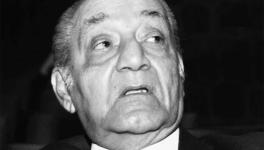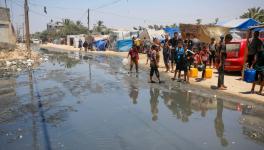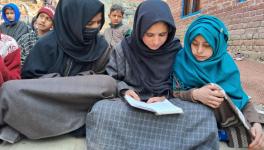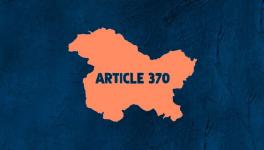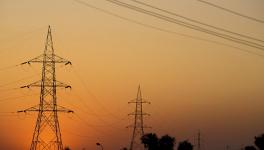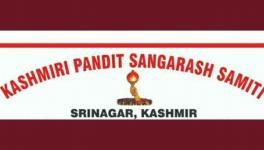In Kashmir Health Professionals Speak Truth to Power
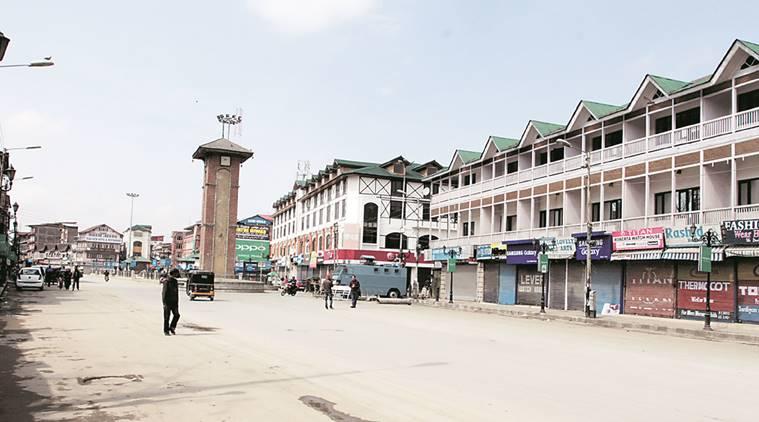
Representational image. | Image Courtesy: Indian Express
These are strange times. A state can just get ‘obliterated’ from the map of the nation. Constitutional propriety is set aside to deprive millions of citizens of their basic human rights while a significant section of the rest of the country ‘rejoices’ over it all.
A large section of the media has abandoned its role as watchdog of democracy but health professionals are coming forward to speak truth to power.
Reports have appeared that eighteen doctors from across India, including Dr Ramani Atkuri, a public health professional, have written to the BMJ, a prominent medical journal, urging the central government to “ease restrictions on communication and travel at the earliest [in Kashmir] and undertake any other measures that are required to allow patients to access health care without hindrance.”
This group of doctors has thrown crucial light on the humanitarian crisis unfolding in the Valley. One consequence of the crisis is “violation of the right to life and to health care.”
It is over two weeks of unprecedented security cover in Kashmir. Supposedly, the security is to prevent large-scale protests after the abrogation of Article 370 and Article 35A, which reduces Jammu and Kashmir (J&K) from a state to two Union Territories.
The immediate result is that not only patients but even medical staff is finding it difficult to reach hospitals in the Valley. Medicines are going out of stock. As the doctors say, “The situation has also led to a lot of mental stress among a population already living with high levels of psychosocial stress.”
With the state under lock-down and hundreds of political leaders and activists arrested, along with all means of communication blocked out, people in the Valley are struggling to access healthcare.
It is worth underlining that this group of doctors is not alone in its concern for the right to life and health care in the region. Lancet, the reputed British medical journal, in an editorial titled Fear and Uncertainty around Kashmir's Future, has underlined how “protracted exposure to violence has led to a formidable mental health crisis” in the region.
It has also questioned Prime Minister Narendra Modi’s claim that the “decision to revoke autonomy will bring prosperity to Kashmir”. Instead, the Lancet says that “first, the people of Kashmir need healing from the deep wounds of this decades-old conflict, not subjugation to further violence and alienation.”
Figures show that despite decades of instability, the developmental indicators of Kashmir show a region that is progressing compared with the rest of India. In 2016, life expectancy was 68·3 years for men and 71·8 years for women, better than the respective national averages. The Lancet editorial details these figures too.
As expected Lancet’s questions have led to a furious response from the Indian Medical Association (IMA). The IMA has claimed that the reputed medical journal has committed a “breach of propriety” by making its own observations. IMA’s argument is that the Lancet has “no locus standi” in Kashmir and that it has written the editorial with a “mala fide intention”.
A closer scrutiny of IMA’s response shows that they have neither bothered to check the facts nor considered Lancet’s history. The journal has never shied away from covering issues where politics and medicine intersect. For, it has a stated position that “health is an important political issue in every society.
The IMA’s doctors seem to be more influenced by general public opinion and have clearly fallen prey to the mass hysteria being manufactured, this time over Kashmir.
Lancet’s claim about the unfolding mental health crisis in Kashmir is based on studies done by Medicines Sans Frontiers (MSF or Doctors Without Borders), a reputed international body that has been active for several years in J&K. MSF has been providing counselling to Kashmiris and it is they who collaborated with the department of psychology, Kashmir University, and the Institute of Mental Health and Neuroscience (IMHANS), for this study.
This scientific survey is available on the Internet and it underlines the shocking figure that 45% of Kashmiris are experiencing mental distress. This amounts to nearly 1.8 million adults in the Valley who now have symptoms of significant mental distress. The MSF study was conducted between October and December 2015.
According to that survey, a research summary of which was released at a symposium on mental health held at the Government Medical College in Srinagar, 41% of people exhibit symptoms of probable depression, 26% show symptoms of probable anxiety and 19% show symptoms of probable Post-Traumatic Stress Disorder.
Consider the gravity of the situation: A study conducted by the World Health Organization in 2015 shows that one in five Indians may suffer from depression in their lifetime. That is the equivalent of 200 million people. The National Mental Health Survey has also recorded that approximately 150 million Indians need care for their mental health condition. The same survey also discovered that between 70 and 92 percent of these cases failed to receive treatment.
Now consider the difference in mental health issues being faced in Kashmir (45%) and rest of India (15-20%).
Also read: Doctors Turn Home into Hospital as Restrictions Continue in Kashmir
Second, it is not the first time that Lancet has raised issues beyond health. In August itself, it had commented on Jair Bolsonaro’s Brazil. Lancet had noted that Bolsonaro’s presidency represents the “most serious threat to Brazil’s indigenous population” since the 1988 Constitution granted them rights to exclusive use of their land.
In June, it had questioned Venezuelan President Maduro’s strategy to control food distribution and subsidise food handouts as a “political weapon”.
In a recent article, Mental illness often stems from early-life trauma. It’s happening in Kashmir by Prof Vikram Patel, the Pershing Square Professor of Global Health at Harvard Medical School raises similar concerns. It quotes a paper by Mohammad Altaf Paul and Waheeda Khan, published in the current issue of the journal, Community Mental Health, which is based on a study that was conducted before the current troubles in the Valley began.
This study describes the results of a survey that assessed the mental health of a thousand children from 12 schools in the Shopian district of Kashmir valley. They report an astonishing finding: One out of every three of the children studied had a clinically diagnosable mental disorder, most commonly in the form of mood, anxiety or behavioural disorders.
It is also not for the first time that the mental health situation in the Valley has become a matter of concern. Kashmir: The Untold Story, by Humra Quraishi is a book that brought forth many unexplored aspects of the Kashmir conflict. The author’s investigation into cases of post-traumatic stress disorder have revealed that the only government hospital in the Valley that deals with psychological ailments has shown a quantum jump in the numbers of patients visiting the out-patient department or OPD.
Whereas until 1990, the number of patients visiting the OPD was merely six a day, by the year 2000 this number climbed to 250 or 300 patients a day.
Hospital records tell us that in 1990 the number of patients admitted to the hospital was 1760. That number also reached 18,000 by 1994. And by 2001 it reached 38,000. Thus there was a 40-fold increase in the number of patients visiting the OPD, a 20-fold increase in the number of patients admitted.
Now that health professionals have revealed the broad human concerns over health in the region, the people of India must prepare to listen to them.
Subhash Gatade is an independent journalist based in Delhi. Views are personal.
Get the latest reports & analysis with people's perspective on Protests, movements & deep analytical videos, discussions of the current affairs in your Telegram app. Subscribe to NewsClick's Telegram channel & get Real-Time updates on stories, as they get published on our website.









